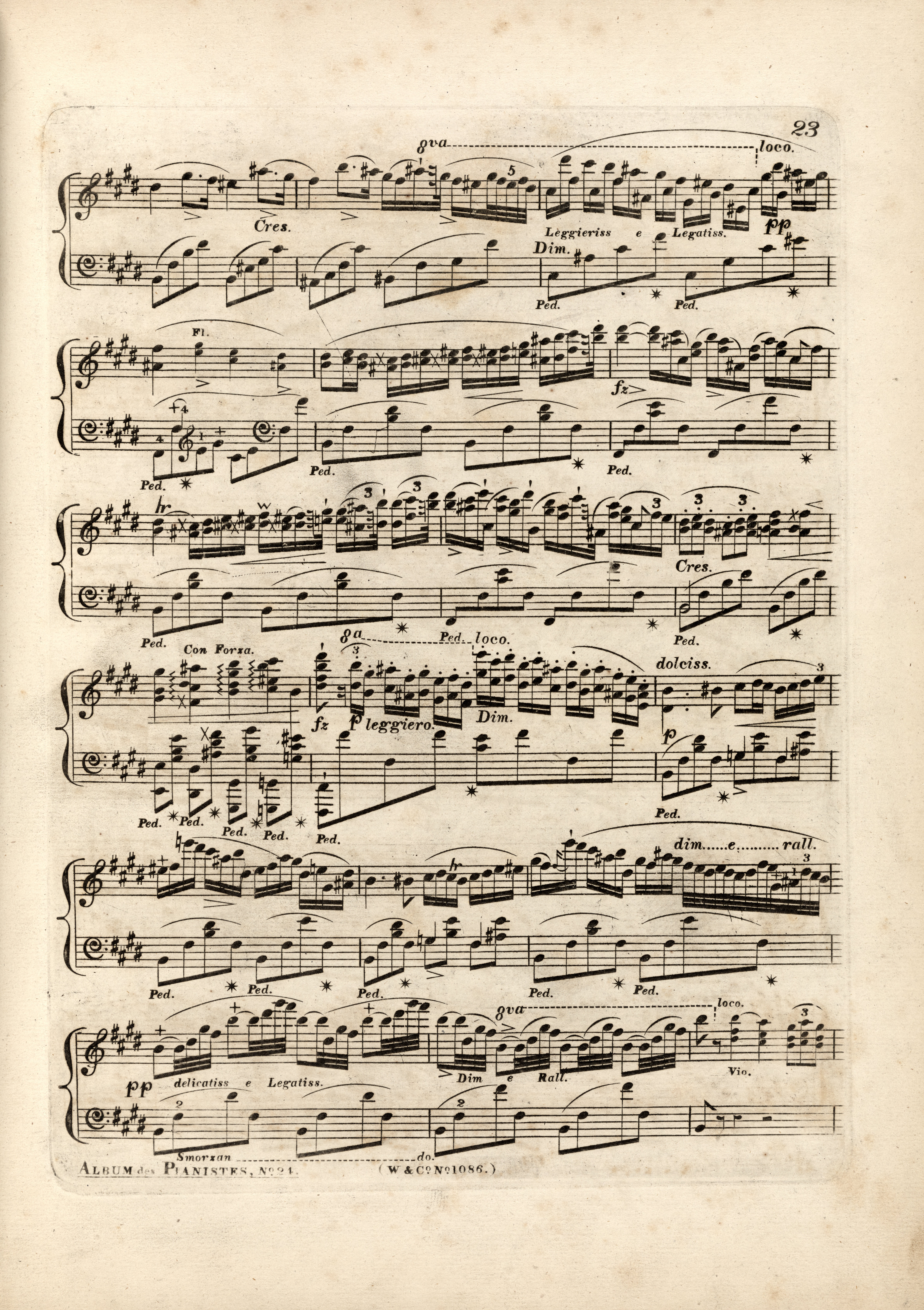Op. 2, Variations in B♭ major
Op. 10, 12 Etudes
Op. 11, Concerto in E minor
Op. 21, Concerto in F minor
Op. 22, Polonaise in E♭ major
Op. 24, 4 Mazurkas
Op. 25, 12 Etudes
Op. 26, 2 Polonaises
Op. 27, 2 Nocturnes
Op. 28, 24 Preludes
Op. 30, 4 Mazurkas
Op. 35, Sonata in B♭ minor
Op. 50, 3 Mazurkas
Op. 63, 3 Mazurkas
Op. 64, 3 Waltzes
(Op. 4), Sonata in C minor




Op. 11, Concerto in E minor, Mvt II
In FE, the triplets on the 6th and 7th quavers in the bar open with a d 2-c
2-c 3 seventh. Chopin corrected those patent mistakes in FED; GE and EE also include the correct version. Entries in pencil are present also in FES and FEJ; however, their meaning is not entirely clear. In FES, something resembling note heads was added in pencil around the erroneous notes, yet they rather look like a deletion of c
3 seventh. Chopin corrected those patent mistakes in FED; GE and EE also include the correct version. Entries in pencil are present also in FES and FEJ; however, their meaning is not entirely clear. In FES, something resembling note heads was added in pencil around the erroneous notes, yet they rather look like a deletion of c 2 than an addition of a b2. In spite of this, since it is difficult to imagine a different aim of additions in this place, we assume that the intention of the person who wrote them, probably Chopin, was to correct the wrong notes. The entry in pencil in FEJ is even less obvious; it looks nothing like the Chopinesque entries – both erroneous notes were put in circles and a quite illegible sign was placed above each of them, perhaps a letter (b?). Therefore, it could mean that the entry was performed by an English-speaking person, hence, e.g. Miss Stirling, who undoubtedly copied the Chopinesque entries from her copies to the copies of Chopin's sister in other pieces.
2 than an addition of a b2. In spite of this, since it is difficult to imagine a different aim of additions in this place, we assume that the intention of the person who wrote them, probably Chopin, was to correct the wrong notes. The entry in pencil in FEJ is even less obvious; it looks nothing like the Chopinesque entries – both erroneous notes were put in circles and a quite illegible sign was placed above each of them, perhaps a letter (b?). Therefore, it could mean that the entry was performed by an English-speaking person, hence, e.g. Miss Stirling, who undoubtedly copied the Chopinesque entries from her copies to the copies of Chopin's sister in other pieces.
Compare the passage in the sources »
category imprint: Interpretations within context; Differences between sources
issues: Annotations in teaching copies, EE revisions, Annotations in FED, GE revisions, Annotations in FES
notation: Pitch

